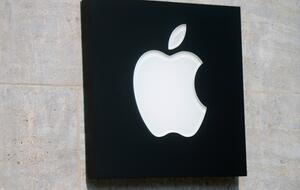The company reported $102.5 billion in revenue for the fourth fiscal quarter, up eight per cent year-over-year and slightly ahead of Wall Street expectations.
However, iPhone sales came in just below forecasts at $49 billion, with Cook attributing the shortfall to supply constraints on several iPhone 17 models and shipping delays in China.
Despite the temporary hiccup, Apple expects a 12 per cent year-over-year increase in overall revenue during the December quarter - which would mark its best quarter ever, according to Chief Financial Officer Kevan Parekh.
Cook said in a statement: “We’re seeing a tremendous response to our new lineup globally,” highlighting the success of the iPhone 17 and the ultra-thin iPhone Air introduced in September.
Market research firm Counterpoint estimates that iPhone 17 sales in the U.S. and China surged 14 per cent higher than the iPhone 16 in their first ten days of release.
Cook said he was “very pleased” with momentum in China, where Apple continues to hold strong against local rivals such as Huawei and Xiaomi.
Still, Apple’s gains come amid broader industry and political challenges.
The company took a $1.1 billion hit from U.S. tariffs in the quarter and expects that figure to rise to $1.4 billion during the holidays as President Donald Trump’s administration expands import taxes on products assembled in China.
Apple has mitigated some risk by shifting production to India and Vietnam while maintaining what Cook described as “a constructive relationship with the administration”.





